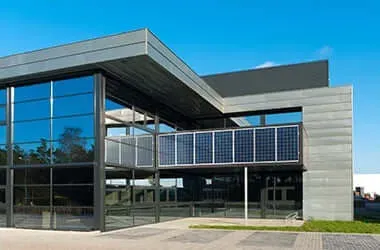Understanding the Expenses Involved in Installing a 100 Watt Solar Panel System
Understanding the Cost of a 100 Watt Solar Panel
In an era where renewable energy sources are gaining increasing importance, solar power has emerged as a leading contender. Among the various options available within the solar market, the 100 watt solar panel stands out as a versatile choice, catering to diverse needs ranging from small-scale home use to outdoor adventures. However, potential buyers often wonder about the cost associated with these panels. This article aims to shed light on the cost dynamics of a 100 watt solar panel, its features, and considerations for potential buyers.
Price Range of 100 Watt Solar Panels
The cost of a 100 watt solar panel typically ranges between $100 and $300, depending on several factors, including the brand, technology, and additional features. For instance, monocrystalline panels tend to be on the higher end of the spectrum due to their higher efficiency and longer lifespan compared to polycrystalline or thin-film panels. When purchasing a panel, consumers must also consider the cost of accessories such as solar charge controllers, mounting racks, and batteries, especially for off-grid systems. These additional components can significantly increase the overall investment.
Factors Influencing the Cost
Several factors influence the price of a 100 watt solar panel
1. Manufacturer Different manufacturers have various pricing strategies and technologies, which can affect the price point of their solar panels. Well-established brands often come at a premium due to their reputation and warranties.
cost of 100 watt solar panel

2. Technology Type As mentioned earlier, the type of technology used in the solar panel greatly affects its cost. Monocrystalline panels are more expensive but provide higher efficiency and better performance in low-light conditions, making them ideal for residential use. Polycrystalline panels are generally more affordable but have lower efficiency rates.
3. Quality of Materials The quality of silicon used in the panels can also impact their longevity and performance. Higher-quality materials usually result in a longer-lasting panel, making them a more sensible investment in the long run.
4. Market Demand Solar panel prices can fluctuate based on market demand and supply dynamics. During periods of high demand or shortages, prices may rise.
Return on Investment
While the initial investment in a 100 watt solar panel may seem substantial, the long-term savings are significant. Solar panels can drastically reduce or even eliminate electricity bills, especially in sunny regions. Additionally, various government incentives and rebates can help offset the costs. It's essential for potential buyers to calculate the potential return on their investment by considering factors such as local energy rates, sunlight exposure, and available rebates.
Conclusion
Investing in a 100 watt solar panel can be a smart decision for those looking to harness solar energy, whether for home use, RVs, or camping. Understanding the cost elements involved helps consumers make informed choices that align with their energy needs and budgets. While the upfront costs may vary across different manufacturers and technologies, the long-term benefits of utilizing solar energy—such as reducing electricity expenses and contributing to environmental sustainability—make it an attractive alternative for the environmentally conscious consumer. As technology advances and the costs of solar energy continue to decline, solar panels are becoming more accessible and economically feasible for everyone.
-
String Solar Inverter: The High-Efficiency Solution for Smart Solar EnergyNewsJul.14,2025
-
Revolutionizing Rooftop Energy with the Power of the Micro Solar InverterNewsJul.14,2025
-
Power Independence with Smart Off Grid Solar Inverter SolutionsNewsJul.14,2025
-
On Grid Solar Inverter: Powering the Future with Smart Grid IntegrationNewsJul.14,2025
-
Monocrystalline Solar Panels: High-Efficiency Power for the Future of Clean EnergyNewsJul.14,2025
-
Bifacial Solar Panel: A Smarter Investment for Next-Generation Energy SystemsNewsJul.14,2025







